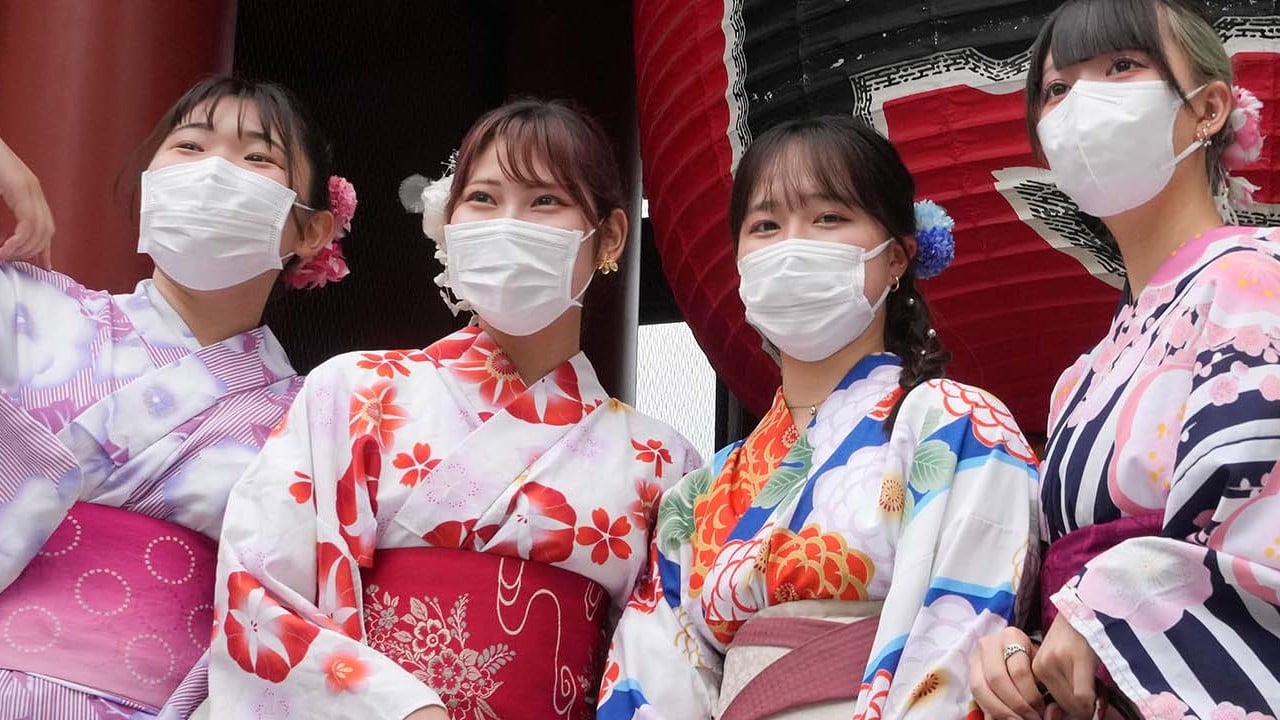
As Taiwan eases some of world’s oldest quarantine rules, remaining curbs and concerns see airlines lament ‘half step forward’
- From mid-October, Taiwan will implement a seven-day testing regimen with strict isolation guidelines for those who test positive for the coronavirus
- Travellers will be allowed outside during the seven-day period if their Covid tests come back negative every two days, but analysts say testing remains a ‘deterrent to travel’
EVA Airways has long been preparing for the big day, October 13, when the government of its home market Taiwan will drop arrival quarantine rules and let in tens of thousands of additional people from overseas every week.
During the dreary days of 2020, after Taiwan closed its borders to most foreign arrivals, EVA replaced aircraft and kept in contact with aviation authorities to sustain its flight network.
But now the airline that operated nearly 620 flights per week before the pandemic, intends to increase its current 194 weekly flights to just 291 in October, according to a spokesman.
“EVA has to make its recovery gradually while complying with Taiwan’s … policies and border-control regulations,” the spokesman explained.
Civil aviation experts expect many airlines to refrain from restoring flights to pre-pandemic levels until Taiwan follows up on its upcoming end to mandatory quarantines with a full erasure of travel restrictions.
The Taiwan government said on Thursday that it would replace its 30-month-old quarantine rules – among the world’s most enduring – with a seven-day Covid-testing regimen with strict isolation guidelines for those who test positive.
The Centre for Disease Control said the cap on arrivals will rise to 150,000 from 60,000 per week on a “trial basis”.
The arrival cap and the testing regimen, alongside continued curbs on flights into nearby mainland China, have airlines laying only cautious plans for Taiwan.
“The announcement by [Taiwan’s] government to ease border measures can be characterised as half a step forward,” said Xie Xingquan, regional vice-president for North Asia with the International Air Transport Association trade group.
We should see an increase in flights as restrictions in Taiwan are lifted … but it will be gradual
Before the pandemic, the island’s US$760 billion tech-led economy and once fast-growing tourism sector kept the island’s chief international airport busy with business and leisure arrivals nearly 24 hours a day.
Since Taiwan closed its borders in March 2020 to nearly all foreign travel, many of its 9,500 tour guides, 2,800 travel agencies and 3,400 hotels weathered the pandemic on government subsidies. Some made money on domestic travel, while others closed.
Spending by inbound tourists in Taiwan totalled US$1.8 billion in 2020, down by 87.51 per cent from 2019, the island’s Tourism Bureau said.
“We should see an increase in flights as restrictions in Taiwan are lifted, similar to other countries, but it will be gradual,” said Brendan Sobie, founder of the Singapore-based consultancy Sobie Aviation.
“First of all, it’s important to see if all the restrictions are lifted, as if there are still some requirements such as Covid testing, demand will still be somewhat impacted, particularly from an inbound perspective.”
Travellers will be allowed outside during the seven-day period if their rapid tests come back negative every two days. Hotel guests who test positive during the seven days must move to a government quarantine centre or a specialised quarantine hotel.
“The fact that visitors staying in hotels who test positive during the medical-surveillance period will be sent to a government quarantine facility can be a deterrent to travel,” Xie said.
Airlines are also wondering whether Taiwan will reimpose quarantines or other rules if caseloads go back up, experts say.
Taiwanese officials have reported between 17,000 and 49,000 daily coronavirus infections since mid-July, with relatively high numbers in September.
“Airlines are still operating cautiously, vis-à-vis Hong Kong, Taiwan and China, as they need to be sure that changes are not going to be rescinded if there’s an outbreak,” said Yusuf Shukor, founder of Malaysia-based aviation consultancy Endau Analytics. “And so, many carriers will tread carefully in re-establishing flights.”
The weekly cap on arrivals will “hamper a full-fledged recovery” in Taiwan, Xie said.
Analysts also say that mainland China’s continued closure to most outside arrivals, combined with the sudden lockdowns of Chinese cities this year due to its disruptive zero-Covid policy, will dampen airline enthusiasm for Taiwan. In 2019, airlines offered about 6.7 million seats between Taiwan and mainland China.
“They will be very, very limited in any recovery, so that remains a major barrier,” said John Grant, director of JG Aviation Consultants in Britain. “Airlines will obviously be pleased by this development [in Taiwan], but there remains a major barrier to anything like a real recovery, which is mainland China’s continued zero-Covid policy and restrictions on international travel.”
Among the airlines with Taiwan routes, Malaysian budget carrier AirAsia X flew more than 263,000 passengers from Kuala Lumpur to Taipei in 2019. It operated twice-daily flights that year and suspended them in March 2020 over travel restrictions. AirAsia X has not committed to restoring flights this year, the company said in an emailed statement on September 23.
“As a popular route, AirAsia X looks forward to reinstating services again soon,” the statement said. “However, there is nothing to confirm at this time.”
Taipei-based travel agency KKday said the overall sales of outbound products in Taiwan in the past week increased by 80 per cent compared with the previous two weeks. More than half of sales are targeting Japan, and many travellers prefer longer stays. KKday just launched a 12-day Japan package to meet demand, a company media liaison said.
“I think all types of airlines and all levels of hotels are likely to profit from a quarantine-free Taiwan, as the demand will be strong,” said Darson Chiu, a research fellow with the Taiwan Institute of Economic Research in Taipei.
“Most East Asian economies, including Hong Kong, are lifting quarantine rules, and that will certainly add more energy to tourism in Asia.”


